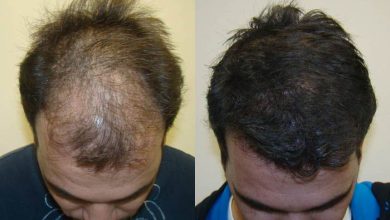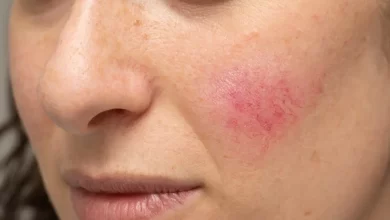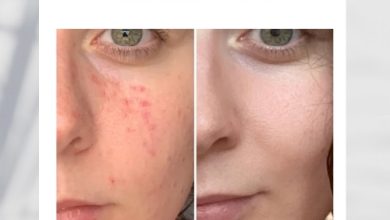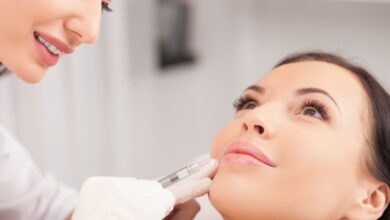What is the Best Treatment for Hair Loss? A Complete Guide to Regrowing Your Hair Naturally and Effectively
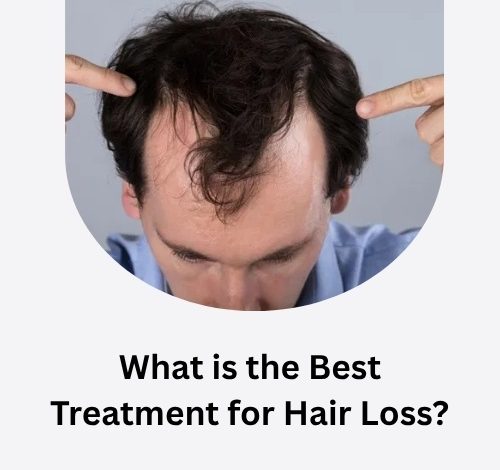
Hair loss is one of the most common concerns for both men and women around the world. Whether it’s thinning hair, receding hairlines, bald spots, or excessive shedding, losing hair can take a serious toll on your confidence and overall well-being. But the good news is that science and nature both offer promising solutions.
The best treatment for hair loss, combining medical advancements, herbal remedies, dietary tips, and lifestyle changes to help you take control of your hair health.
Understanding Hair Loss: Why Does It Happen?
Before we jump into the best treatment for hair loss, it’s important to understand why hair falls out in the first place. Hair loss can be caused by a range of factors, including:
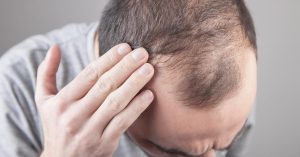
- Genetics (Androgenetic Alopecia)
- Hormonal Imbalances (e.g., thyroid issues, PCOS)
- Nutrient Deficiencies (e.g., iron, biotin, vitamin D)
- Stress and Anxiety
- Autoimmune conditions (e.g., alopecia areata)
- Medications (chemotherapy, antidepressants, etc.)
- Harsh Hair Treatments and Styling
Each of these triggers may require a different approach, but thankfully, a variety of treatments can address multiple root causes at once.
Alopecia Areata Ayurvedic Treatment
Alopecia areata Ayurvedic treatment focuses on balancing the body’s doshas—Vata, Pitta, and Kapha—to address the root cause of hair loss. In Ayurveda, alopecia areata is often linked to aggravated Pitta dosha and poor digestion (Agni), which can lead to weakened hair follicles and immune response. Herbal remedies such as Bhringraj, Amla, Brahmi, and Ashwagandha are commonly used to nourish the scalp, strengthen hair roots, and reduce stress, which is a known trigger for this autoimmune condition. Ayurvedic oils like Neelibhringadi or Brahmi oil are gently massaged into the scalp to stimulate circulation and promote hair regrowth naturally.
Lifestyle and dietary changes are also a key component of alopecia areata Ayurvedic treatment. Patients are often advised to follow a Pitta-pacifying diet, rich in cooling, non-spicy, and fresh foods to help calm internal inflammation. Detoxification therapies such as Panchakarma may also be recommended to eliminate toxins and restore overall balance in the body. By integrating these holistic approaches, Ayurveda offers a personalized and natural path to managing alopecia areata and encouraging long-term hair restoration.
1. FDA-Approved Medical Treatments
Let’s start with scientifically backed medications—often considered the best treatment for hair loss in conventional dermatology.
Minoxidil (Rogaine)
Minoxidil is an over-the-counter topical treatment approved by the FDA for both men and women. It works by stimulating blood flow to the scalp and encouraging hair follicles to enter the growth phase.
- How to Use: Apply directly to the scalp once or twice daily.
- Pros: Easily available, promotes regrowth, effective for many.
- Cons: Must be used indefinitely, potential side effects (itching, irritation).
Finasteride (Propecia)
Finasteride is a prescription oral medication designed for men. It blocks the conversion of testosterone to DHT (dihydrotestosterone), the hormone responsible for male pattern baldness.
- Pros: Effective in slowing hair loss and promoting growth.
- Cons: Not for women; potential sexual side effects.
2. Platelet-Rich Plasma (PRP) Therapy
PRP therapy is gaining popularity as a natural and effective method. It involves drawing your blood, extracting the platelet-rich plasma, and injecting it into the scalp.
- Benefits: Stimulates natural growth, strengthens hair follicles, minimal downtime.
- Limitations: Requires multiple sessions, expensive, results vary.
For many, PRP is emerging as the best treatment for hair loss when looking for a minimally invasive, non-pharmaceutical option.
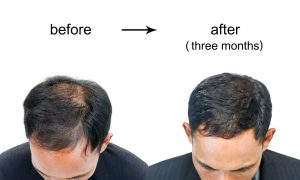
3. Laser Therapy for Hair Regrowth
Low-level laser therapy (LLLT) uses red light to stimulate hair follicles, improve cell metabolism, and increase blood circulation to the scalp.
- Devices: Laser combs, caps, and helmets.
- Ideal For: Early to moderate hair thinning.
- Results: Noticeable improvements in density over months of consistent use.
4. Hair Transplant Surgery: A Permanent Solution?
If you’re looking for a long-term fix and have the budget for it, hair transplant surgery can be life-changing.
Types of Transplants:
- FUT (Follicular Unit Transplantation)
- FUE (Follicular Unit Extraction)
Both procedures involve relocating hair follicles from denser parts of the scalp to bald areas. While it’s considered the best treatment for hair loss for some, especially in advanced cases, it is surgical and comes with risks and recovery time.
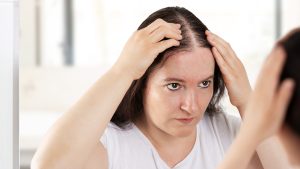
5. Herbal Remedies: The Best Natural Treatments for Hair Loss
Nature has its own powerful arsenal of herbs and plant-based treatments to stimulate hair growth, reduce shedding, and improve scalp health.
Saw Palmetto
This natural DHT blocker is often used in herbal supplements and shampoos to reduce hair loss, especially in men.
Bhringraj (Eclipta Alba)
An Ayurvedic herb known for strengthening hair roots and preventing premature graying.
Ashwagandha
Helps regulate cortisol levels, reducing stress-induced hair loss.
Hibiscus
Hibiscus flower and leaves can be used as an oil or hair mask to thicken hair and reduce breakage.
Peppermint and Rosemary Essential Oils
Both essential oils have been shown in studies to increase circulation and promote hair growth when diluted in carrier oils.
6. Diet and Nutrition: Feed Your Follicles
What you eat plays a direct role in your hair’s health. For many, nutritional deficiencies are an overlooked cause of hair loss.
Key Nutrients for Hair Growth:
- Biotin – A B-vitamin essential for keratin production.
- Iron – A deficiency can cause anemia-related hair thinning.
- Zinc – Helps repair hair tissue and keeps oil glands healthy.
- Vitamin D – Stimulates hair follicles.
- Protein – Hair is made of keratin, a type of protein.
- Omega-3 Fatty Acids – Nourish the scalp and support thick hair.
Foods That Help:
Eggs, spinach, lentils, salmon, avocados, nuts, seeds, and sweet potatoes are great additions to a hair-friendly diet.
7. Supplements for Hair Growth
While food is the best source of nutrients, high-quality supplements can help fill in the gaps—especially for people with dietary restrictions or absorption issues.
Popular Hair Supplements:
- Viviscal
- Nutrafol
- Hair La Vie
- Folexin
- Biotin Gummies
Choose a supplement with third-party testing and no harmful additives. When paired with a healthy diet, they can enhance the best treatment for hair loss.
8. Scalp Care and Hygiene
A healthy scalp is the foundation for healthy hair. Poor scalp hygiene, buildup of oils, or dandruff can weaken follicles and contribute to hair loss.
Scalp Care Tips:
- Use a clarifying shampoo once a week to remove buildup.
- Massage your scalp daily to boost blood circulation.
- Avoid hot water – lukewarm is best.
- Use natural, sulfate-free shampoos.
- Consider using a scalp serum with caffeine or peptides.
9. Lifestyle Changes to Prevent Hair Loss
Hair loss is not just a surface issue—it often reflects what’s going on inside your body. Here are some powerful lifestyle habits to incorporate:
- Sleep at least 7-8 hours per night.
- Reduce chronic stress through yoga, meditation, or exercise.
- Quit smoking – it restricts blood flow to the scalp.
- Limit alcohol – it depletes essential vitamins.
- Avoid tight hairstyles and heat styling tools.
These small yet impactful shifts can elevate the effectiveness of any treatment.
10. Choosing the Best Treatment for Hair Loss: What’s Right for You?
The truth is, the best treatment for hair loss isn’t one-size-fits-all. It depends on your individual diagnosis, age, gender, health history, and personal preferences.
Here’s a Quick Guide:
| Condition | Best Treatment Option |
| Male Pattern Baldness | Finasteride + Minoxidil or Hair Transplant |
| Female Hair Thinning | Minoxidil + Hormone Check + Supplements |
| Stress-Related Loss | Ashwagandha + Scalp Massage + Sleep |
| Nutritional Deficiency | Iron, Zinc, and Biotin Supplementation |
| Autoimmune Hair Loss | PRP, Low-Level Laser, Anti-inflammatory Diet |
Consulting with a dermatologist or trichologist (hair and scalp specialist) is crucial for proper diagnosis and personalized treatment planning.
Realistic Expectations: Patience Pays Off
Hair regrowth is a slow process. Most effective treatments take 3 to 6 months before you start seeing visible changes—and full results often take up to a year.
Stay consistent, track your progress with photos, and be cautious of scams or “miracle cures” that promise instant results.
Final Thoughts: Your Path to Hair Restoration
Whether you’re dealing with minor thinning or more significant hair loss, the key is early intervention. The best treatment for hair loss often combines science, nature, and healthy lifestyle choices tailored to your unique needs.
With the right approach, you can reclaim your confidence, nourish your scalp, and restore the hair you love.
Frequently Asked Questions (FAQs)
Q1: Can hair loss be reversed naturally?
Yes, many cases of hair loss can be reversed with proper diet, supplements, stress management, and topical treatments—especially if caught early.
Q2: Is hair loss always permanent?
No. Temporary hair loss from stress, diet, or illness can often be reversed. Genetic hair loss is more challenging but can be managed and slowed down.
Q3: Are herbal treatments effective for hair loss?
Yes, herbs like saw palmetto, ashwagandha, and bhringraj have shown positive results when used consistently and in proper dosage.

